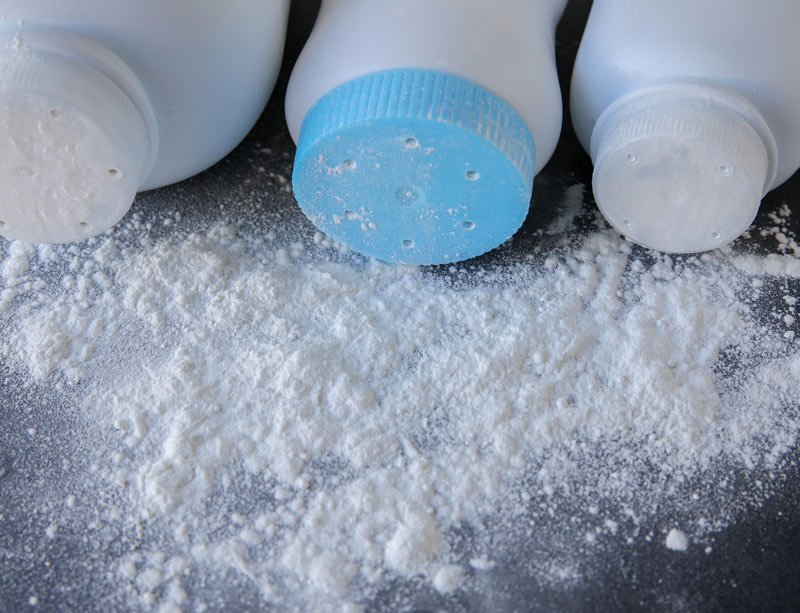Johnson & Johnson Will Pay $100M in Baby Powder Lawsuits

Pharmaceutical giant Johnson & Johnson has agreed to pay more than $100 million to settle more than a thousand lawsuits claiming its iconic talc-based baby powder caused cancer, according to Bloomberg News.
The settlement stems from burgeoning litigation after earlier asbestos-contaminated talc was found in one of its products.
Johnson & Johnson, the world’s largest maker of health care merchandise, recalled 33,000 bottles of its baby powder in 2019, “out of an abundance of caution.”
It also stopped selling talc-based baby powder the same year in the United States and Canada, switching to a cornstarch-based product.
This will be the first time Johnson & Johnson has settled lawsuits in bulk involving talc contamination. It previously settled only individual cases before or during trial.
J&J Still Insists Products Are Safe
The settlement involved several law firms across the country, including the Lanier Law Firm, which won a $4.7 billion verdict in 2018 against Johnson & Johnson. That award was cut to $2.1 billion on appeal and is being appealed again in the Supreme Court of Missouri.
This settlement, according to Bloomberg, resolves most all of Lanier’s remaining cases against J&J.
Despite this latest settlement, Johnson & Johnson continues to insist its products are safe to use and the contamination found was an isolated case.
“Scientific evidence by medical experts around the world shows that our talc is safe and does not cause cancer,” Kim Montagnino, Global Corporate Media Relations director for J&J, said in an email. “However, in certain circumstances, we do choose to settle lawsuits, which is done without an admission of liability and in no way changes our position regarding the safety of our products. Our talc is safe, does not contain asbestos and does not cause cancer.”
Even after this latest settlement, J&J is still facing an estimated 20,000 talc-related lawsuits, which Bloomberg estimated would cost $10 billion to settle.
The majority of contaminated talc lawsuits involve women who used the product for many years and developed ovarian cancer. A small percentage of the cases involve malignant mesothelioma, a more aggressive cancer caused almost exclusively by exposure to asbestos.
Contaminated talc stems from the mining of the product, which often is found on the earth’s surface near asbestos, another naturally occurring mineral.
Internal J&J documents have shown that company executives have known for decades that trace amounts of asbestos had been found in the talc, but they failed to alert consumers.
Mesothelioma Cases Are Growing
The company has adamantly claimed that any asbestos present is removed in the manufacturing process and has cleared the most stringent scientific testing.
The safety of talc, and the presence of asbestos, has been debated vigorously by lawyers and scientists.
Different testing methods have revealed conflicting results.
The 2019 recall by J&J, for example, came after U.S. Food and Drug Administration scientists discovered traces of asbestos in one bottle. Johnson & Johnson later said its own test of the same bottle showed no trace of asbestos.
J&J’s decision to move from talc-based to cornstarch-based baby powder has been part of a recent trend among all users of talc, including cosmetic manufacturers.
The presence of talc also is changing traditional asbestos-related lawsuits, which once were dominated by working-class exposure to the mineral and mesothelioma.
According to KCIC, a consulting firm in Washington, D.C., that manages asbestos product liabilities, almost 600 cases involving contaminated talc and mesothelioma will be filed in 2020.
J&J is scheduled to face its next case involving asbestos-contaminated talc beginning Oct. 13 in California, where Rosalino Reyes III says he used the baby powder for almost 50 years before being diagnosed with mesothelioma in 2019.